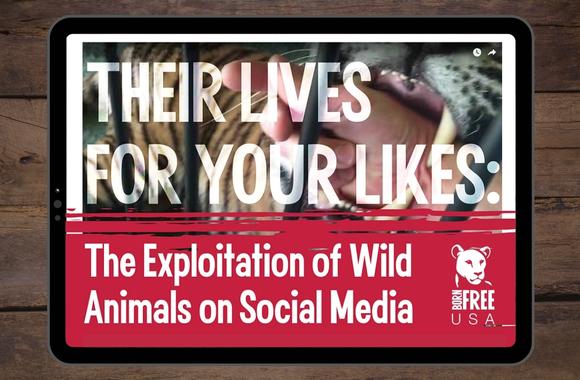Concerns about the ethics and impact of using wildlife for human entertainment are growing globally, particularly as social media influencers increasingly manipulate or capture wild animals to gain followers. This trend raises urgent questions about animal welfare, public safety, and legal compliance, highlighting the pressing need for awareness and action.
One recent example that has sparked widespread outrage involves influencer Mike Holston. Videos posted by Holston show interactions with freshwater crocodiles in Queensland, Australia, that have drawn sharp criticism from wildlife advocacy organizations such as Community Representation of Crocodiles (CROC) and PETA. Experts argue that these stunts cause unnecessary stress to the animals, violate Queensland’s Nature Conservation Act, and may lead to severe consequences for both the crocodiles and the people involved. The Queensland Environment Department is now investigating the videos and considering “strong compliance action,” including fines.
The dangers are not limited to legal issues. Crocodiles are powerful and unpredictable animals, and forced interactions with them pose serious safety risks to Holston, his employees, the public, and the animals themselves.
In worst-case scenarios, such stunts can lead to lethal management of the animals if they act aggressively.
Critics also warn that content like this normalizes harmful behavior, encouraging other influencers and viewers to attempt similar interactions with wild animals—a pattern that perpetuates abuse and undermines conservation efforts.
Holston’s track record further complicates the issue. He has previously faced charges in Florida for unlawful possession, sale, and transport of animals, which were later dropped as part of a pre-trial diversion program. However, this history disqualifies him from obtaining a federal Animal Welfare Act (AWA) exhibitor’s license. He has also partnered in creating The Wyld Jungle, an unlicensed roadside zoo in California. These actions underscore a consistent pattern of prioritizing personal gain over animal welfare.
The concerns surrounding Holston’s behavior reflect broader ethical issues in wildlife entertainment. Many animals used for human amusement suffer physical and psychological harm, including stress, trauma, and neglect. They are often removed from their natural habitats, forced into unnatural behaviors, and subjected to abusive training methods. Practices such as taking babies from their mothers for photo opportunities or shows can disrupt natural behaviors and even jeopardize species survival.
In addition, many wildlife attractions mislead the public by claiming to support conservation efforts while focusing primarily on profit. Legal protections for captive wildlife are frequently inadequate or poorly enforced, leaving animals vulnerable to abuse. Forced interactions with humans—posing for photos, petting, or staged stunts—can also endanger both people and animals, creating a cycle of risk and suffering.
So, what can concerned individuals do to combat this issue? Here are concrete steps:
- Avoid attractions that exploit animals: Opt for travel experiences that do not involve direct contact with wild animals or entertainment-driven exploitation.
- Report harmful content: Social media users can flag videos or posts that depict mistreatment of wildlife to help stop the spread of abusive practices.
- Support responsible alternatives: Contribute to or visit genuine wildlife sanctuaries and conservation organizations that prioritize animal welfare and species preservation without exploitation.
- Educate others: Raising awareness about the harmful impact of the wildlife entertainment industry is one of the most effective ways to foster change.
This situation exemplifies a larger pattern of influencers chasing clout at animals’ expense. Nothing screams “I need attention” louder than targeting a young crocodile for online views. Wildlife deserves respect and protection, not viral stunts.
To stay informed and take meaningful action against wildlife abuse, visit Sustainable Action Now for resources, updates, and ways to make a difference. By speaking out, supporting ethical organizations, and refusing to normalize exploitative behavior, every individual can contribute to a safer, healthier future for wild animals everywhere.
#WildlifeAbuse #AnimalWelfare #EthicalTourism #ProtectWildlife #StopExploitation


